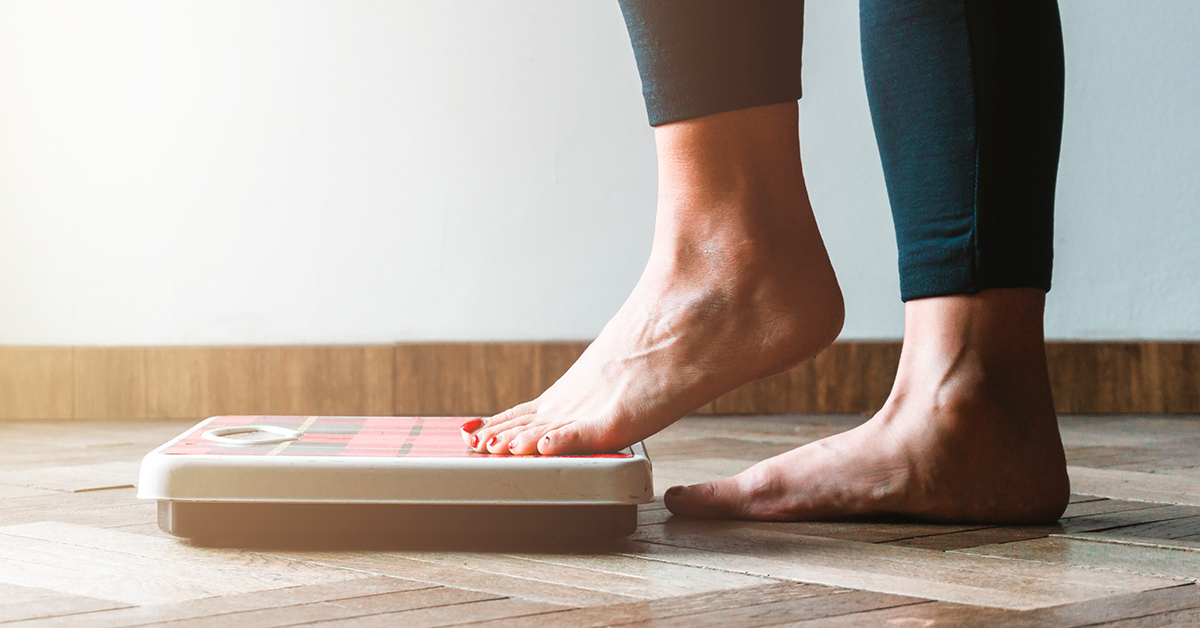SIBO and Weight Gain: How Are They Related?

Does SIBO cause weight gain? Could SIBO be why you can’t seem to shed the weight you want to lose?
The questions surrounding SIBO and weight gain are plentiful. Most people know that SIBO can cause weight loss, but there are many indicators that it can cause fluctuations and increases in your weight as well. Medical professionals are still exploring the correlation between SIBO and weight, but here’s where the link may lie.
The Connections Between SIBO and Digestion
Small intestinal bacterial overgrowth (or SIBO) is a condition where there is an abnormal surge of bacteria in the small intestine. While bacteria are a vital part of the digestive process (and exist throughout the digestive tract), SIBO occurs when the bacterial growth is off balance. Often there is a presence of bacteria that aren’t usually found in the small intestine.
So, what causes SIBO? Microorganisms can get thrown out of balance for many different reasons. Typically, there’s an increase or decrease in the chemicals that help regulate intestinal bacteria like enzymes, bile, or gastric acid.
An imbalance can happen due to surgery, infection like H. Pylori, and certain medications like proton pump inhibitors and antacids. Certain antibiotics and narcotics can also throw intestinal flora out of balance. Motility disorders like hypothyroidism or gastroparesis can cause SIBO too. Structural issues like bowel obstructions and diverticulitis can also cause SIBO.
Some people are at higher risk for SIBO, such as older people, those with immunodeficiency and autoimmune disorders, and those who have recently had structural changes to the intestines due to illness or surgery. In addition, there are many comorbidities with SIBO, including IBS, inflammatory bowel disease, Celiac, diabetes, and Lupus. Doctors are still studying the causal relationship between these disorders and the occurrence of SIBO.
One thing is clear, SIBO can affect digestion and the processing of foods. Some people experience effects like constipation, stomach pain, diarrhea, and nausea. In addition, people with SIBO may have a loss of appetite, a feeling of “over fullness,” and bloating. Like many digestive disorders, SIBO can be challenging to diagnose because symptoms look similar.
Taking a breath test is an important way to narrow down the diagnosis and help determine if SIBO contributes to your discomfort. Order a test today, or discuss the option with your doctor so that you can find the right treatment.
The SIBO-Constipation Connection
Constipation is often a sign of SIBO. While constipation doesn’t directly cause weight gain, it can cause bloating. As a result, your clothes may feel tight and uncomfortable. You may feel like you’ve put on weight in your midsection, even if the scale still reads the same.
When it comes to constipation and SIBO, the root cause is usually the bacteria. Certain types of bacteria produce methane gas. When there’s methane in your system, it slows down the digestive process.
You can think of your digestive system as a river. When everything works properly, the water flows clearly and healthily—things are moving right along. However, if there are suddenly rocks in the river—methane—the river slows down, becomes dirty, and sluggish.
Some people tend to produce more methane. This is because their body may support the methanogen (m. smithii), which is where the connection to SIBO comes in. When you’re having an overgrowth of methane, your body produces more methane, and thus, you may experience more constipation.
If your digestive transit time is slow, the food you eat becomes sluggish in your system. It doesn’t move through your body quickly and might feel like you’ve gained weight. Constipation causes chronic inflammation as stool builds up in the bowels. Your stomach may hurt, and you feel terrible. That may include feeling as though you’re gaining weight.
SIBO is also associated with hydrogen sulfide, which causes diarrhea, weight loss, and vitamin deficiency. But, again, it depends on the type of bacteria that is over-growing. While weight loss is more commonplace with SIBO, it’s important to note that constipation can also be a concern.
Will You Lose Weight When Your Treat SIBO? Will You Gain?
So what happens when you treat SIBO? Will you lose weight? Gain weight? Many people may worry that if they’re already struggling with digestive woes, weight gain may only make them less comfortable and more unhappy with their health.
The treatment of bacterial overgrowth will lead to a much healthier digestive tract. Again, returning to the idea of the river—when you remove the rocks from the river, water starts flowing again, and the river becomes clear and healthy.
Concerns about weight gain or loss shouldn’t inhibit you from seeking treatment for SIBO. As intestinal cells recover with SIBO treatment, they will have an easier time absorbing nutrients. As a result, your blood sugar and appetite may better stabilize, and you may notice that you don’t overeat because your body isn’t craving lacking nutrients.
In most studies, after a short period of digestive stabilization, people didn’t experience significant weight changes after treating SIBO. However, what they did experience was a more comfortable, better-functioning digestive system. Imagine not feeling bloated, fighting off bouts of constipation and diarrhea. When your gut bacteria is stabilized and health is restored, your quality of life also increases.
If you’re experiencing any symptoms of SIBO, don’t ignore the pain. Instead, reach out to your doctor or order an at-home test kit, so you can discover another piece to help solve your digestive puzzle.

